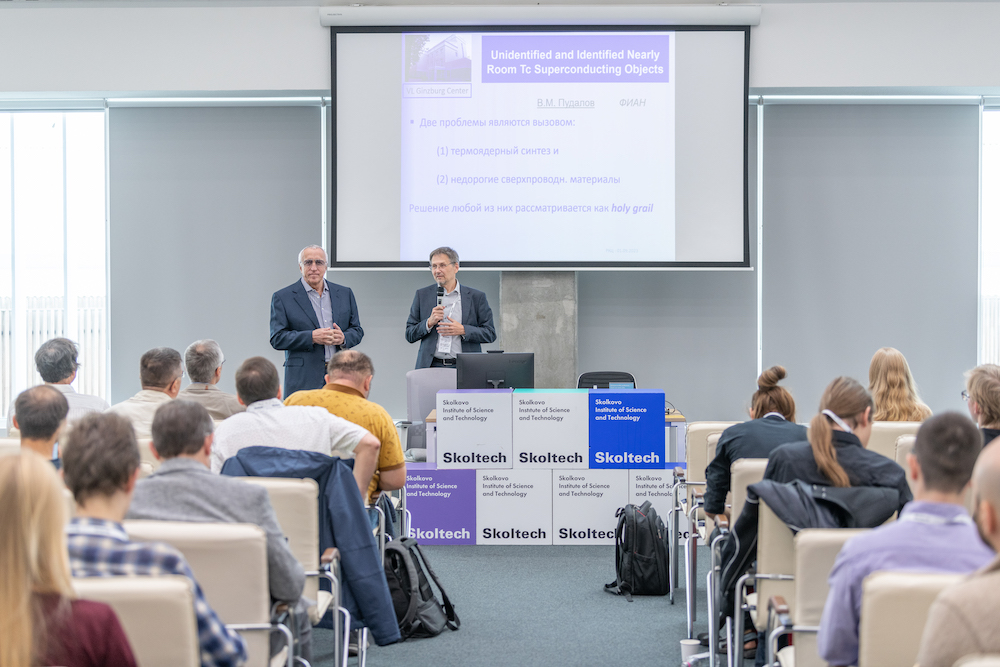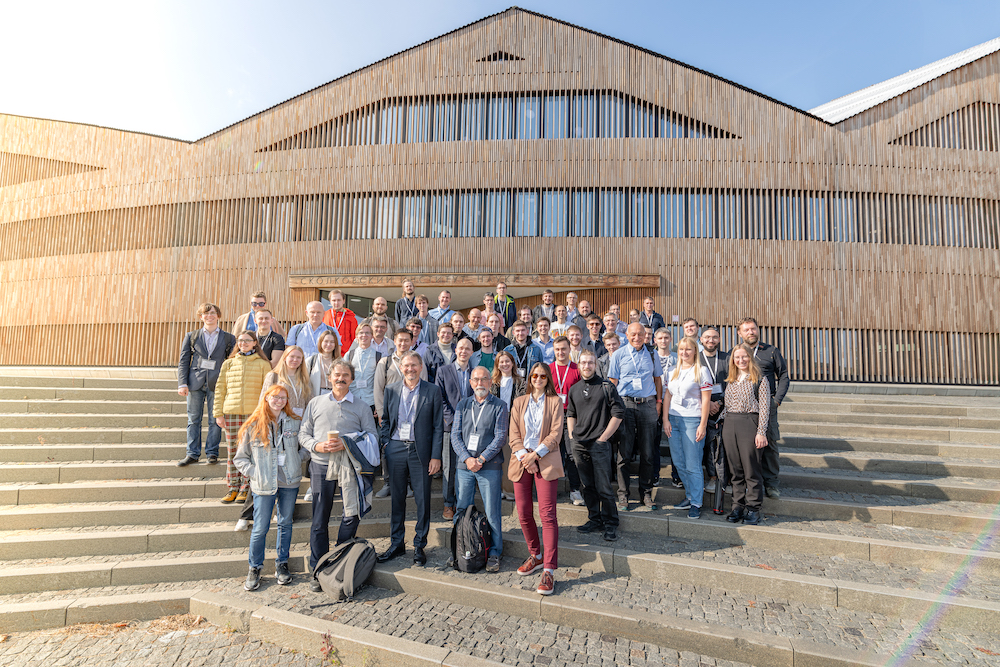On September 17-22, Skoltech has welcomed participants of the Supernano 2023 conference. Renowned Russian specialists in this relevant field from Skoltech, Moscow Institute of Physics and Technology, MISIS University of Science and Technology, Moscow State University, Russian Academy of Sciences — Osipyan Institute of Solid State Physics, Institute for Physics of Microstructures, Kotelnikov Institute of Radioengineering and Electronics — and other leading research institutions will give oral presentations, while research scientists, master and PhD students will join poster sessions. The conference will provide presenters with an opportunity to communicate, discuss recent research results, establish academic ties in the field of superconductivity.

Image 1. Skoltech President Alexander Kuleshov and Professor at the Engineering Center in Skoltech Oleg Astafiev at the conference opening. Credit: Timur Sabirov
Superconductivity is a fundamental quantum phenomenon. Transmitting electricity without any losses is extensively used in science and technology. No less perspective are other superconductivity quantum phenomena, which can be found in thin-film micro- and nanostructures. They can be used in principally new devices: quantum detectors and sensors, as well as in the new field of computer engineering — quantum computers. Quantum devices, in comparison with traditional ones, will cope with their tasks more efficiently — for example, quantum sensors can register very weak fields, in metrology quantum standards set precise electrical values, and quantum computers will handle special complex tasks that classical computers will take much time to solve.
Russian scholars have always been among pioneers and leaders of superconductivity: “This area has always been the strong suit of Soviet and Russian science,” said Oleg Astafiev, a professor at the Engineering Center in Skoltech and a member of the conference organizing committee. “Russian researchers have always played a leading role in superconductivity. It is proved by the number of Nobel prizes: Vitaly Ginzburg, Alexey Abrikosov, Lev Landau. We have a very strong community.”
“Discoveries of our researchers cover not only fundamental aspects. Researchers from Moscow State University put forward the most prominent digital superconductivity “one-quantum” logic. Members of that school take part in our conference. The organizing committee and presenters also include acknowledged scholars, who played a key role in the development of superconducting coherent devices based on qubits,” adds Valery Ryazanov, a professor in Moscow Institute of Physics and Technology and a member of the conference organizing committee.
Apart from exchanging research results, the organizing committee emphasizes, the conference will help do the networking: “We would like to facilitate communication, support the community, in which people will interact. This year, we are hosting a national conference on superconductivity, but we hope that in the future we will switch to an international mode,” continues Oleg Astafiev.
The conference tracks include both fundamental aspects of promising superconductivity areas of nanostructured and hybrid systems, as well as applied ones. Among the fundamental topics are coherent effects in highly disordered superconductors, topological phenomena in hybrid structures with superconductors and topological insulators, charge and spin dynamics in layered superconductor-normal metal and superconductor-ferromagnetic structures, and others. These directions are associated with new charge and spin phenomena and its use in fundamentally new devices and elements of “post-silicon electronics”. In them, along with the charge, the carriers of information are the magnetic moment (spin) of the electron, as well as quantum topological formations — vortices, Majorana fermions, and others. In the applied aspect, the conference focused on superconducting quantum technologies and radiation detectors.
Contact information:
Skoltech Communications
+7 (495) 280 14 81

